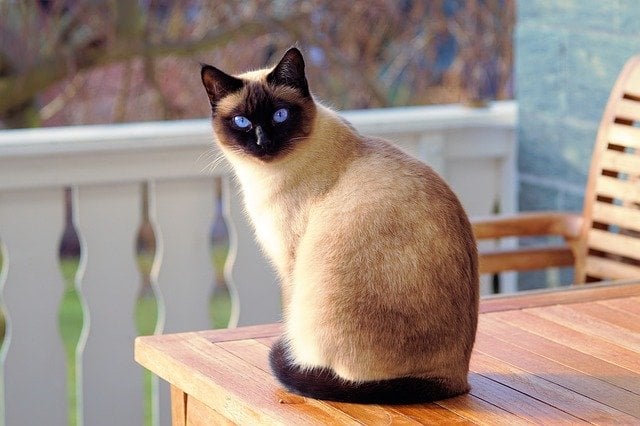Listen&Learn: The Cat Who Helped Write a Scientific Paper
Posted by: Jaksyn Peacock
Pre-listening vocabulary
- atomic: relating to atoms
- proofread: to check writing for mistakes before publishing it
- unintentionally: accidentally; unknowingly
- problematic: causing difficulties
- credit: to name someone as the creator of something
- co-author: one of two or more authors
Listening activity
Podcast: Play in new window | Download (Duration: 1:37 — 1.5MB)
Subscribe: Apple Podcasts | More
Gapfill exercise
In 1975, a physics professor named Jack H. Hetherington wrote a paper about atomic behaviour. He was planning to submit this paper to a well-known scientific journal called the Physical Review Letters. However, when he was proofreading his work, he realized that he had unintentionally used the word “we” when writing about himself. Although this was a small , it was very problematic. The Physical Review Letters had a rule against the use of the word “we” unless the paper had multiple authors. Hetherington had written his entire paper on a typewriter, and he didn’t want to retype it all just to fix his error. Instead, he simply to credit another author. The author he chose was his cat, Chester. He changed Chester’s name to Felis Domesticus Chester Willard, shortened to F. D. C. Willard, to make it more . Hetherington’s plan worked, and his paper was published. Eventually, he admitted that the co-author was a cat, and even had Chester copies of the paper by making ink paw prints.Comprehension questions
[wp_quiz id=”19503″]Discussion/essay questions
- Hetherington’s paper is now well-known, and has been quoted by many other researchers. Do you think that his paper would have been as successful if he hadn’t had a funny story to go with it?
Transcript
In 1975, a physics professor named Jack H. Hetherington wrote a research paper about atomic behaviour. He was planning to submit this paper to a well-known scientific journal called the Physical Review Letters. However, when he was proofreading his work, he realized that he had unintentionally used the word “we” when writing about himself. Although this was a small mistake, it was very problematic. The Physical Review Letters had a rule against the use of the word “we” unless the paper had multiple authors. Hetherington had written his entire paper on a typewriter, and he didn’t want to retype it all just to fix his error. Instead, he simply decided to credit another author. The author he chose was his cat, Chester. He changed Chester’s name to Felis Domesticus Chester Willard, shortened to F. D. C. Willard, to make it more believable. Hetherington’s plan worked, and his paper was published. Eventually, he admitted that the co-author was a cat, and even had Chester sign copies of the paper by making ink paw prints.
Search for more Listen&Learn stories:
29 comments
-
Felis Domesticus Chester Willard says:
I know I am a hero ! I really helped my master writing his text, it was so difficult but I love sciences ! Thanks to all you for the congratulations.
F.D.C -
Snowy :D says:
What a thoughtful and creative story! I love is so much! And, thanks to the cat! It’s so clever to be a professor!!! Love this story! This is the story that always catches people’s attentions! I love it so much and this article is sent by myself to share to my friends as they really love animals, excpecially kitties!
-
Vrishin says:
Funny and informative story
-
Vrishin says:
Funny and informative story
-
Sonja says:
The cat is very clever. Thaks to her has this paper published.
Thank you for unusual an nice story
-
Ronaldo says:
the cat was very smart because it helped him write the article
-
Harini S says:
Such a great story!!
-
Mailoan says:
Thanks .What a funny story!
-
Jasmin Gonzalez says:
this story is very funny lol
-
BALDE, boubacar siddy says:
tank you teacher
-
saeed says:
.
-
mansour says:
thanks
-
Is Estrada says:
Thank U so much, you`re really good, xoxo
-
The King Of Love From IRAN says:
Thank you so much,
I wish all of you Love and Peace -
Alice says:
Thank you very much
-
mercedes says:
I LOVED IT.-
-
William Braga says:
This is a story that CATches everybody’s attention.
-
mojgan says:
yes ı thoroughly enjoyed that . thank Englısh club
-
Pierre Colleaux says:
had Chester sign copies?? Why not “had signed”?
Note from Admin to Pierre…
“have someone do something” = “encourage someone to do something”, “persuade someone to do something”, “ask someone to do something” for example: “The doctor had me roll my sleeve up so that she could vaccinate me.” -
Saiyouth Vongsaikham says:
Such a great story!!! I love it and also very smart idea.
-
Ana C Afane says:
What a funny story!!!!
-
Waraporn Wun says:
What an unusual story!
-
David says:
Such a cat-author!
-
Daffy Cloud says:
It’s fantastic
-
hachan says:
very nice story
-
Christine PENNEC says:
wonderful story
-
Aden says:
Incredible story
I loved it -
Evgenia says:
Such funny story!
I’ve thoroughtly enjoyed. -
Gabriele Rinelli says:
Very nice story!